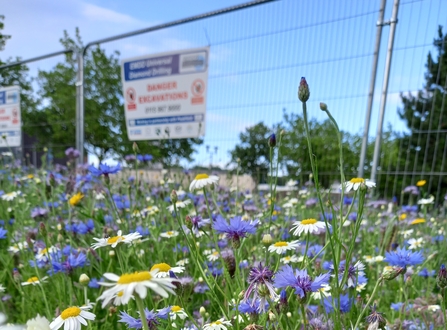The Planning and Infrastructure Bill is a piece of legislation introduced to Parliament on 11 March 2025 by the UK Government. The Bill aims to speed up planning decisions to boost housebuilding by removing barriers to delivering vital infrastructure like roads, railways, and wind farms. The Government's stated goal is to deliver 1.5 million homes in England and fast-track 150 planning decisions on major economic infrastructure projects by the end of this Parliament.
Key elements
- Streamlining the planning system for nationally significant infrastructure projects (NSIPs)
- Introducing strategic planning at sub-regional level through Spatial Development Strategies
- Establishing a Nature Restoration Fund and levy system
- Reforming compulsory purchase powers
- Creating new delegation schemes for planning committees
The Bill has now completed its committee stage in the House of Commons and is currently at the report stage, which took place on 9-10 June 2025.
What are our concerns with regards to the Bill's impact on nature?
The Wildlife Trusts are concerned that with nature in decline and nature recovery targets currently due to be missed, it would be disastrous if instead of a 'win-win for development and for nature', we arrive at a 'lose-lose' scenario.
Our key concerns include
We have specific concerns that the bill downgrades nature protection by removing the mitigation hierarchy included in the Habitats Regulations 2017. It is deeply concerning that this critical tool to protect nature is currently not recognised within part 3 of the bill. The Bill lacks requirements for the mitigation hierarchy, which prioritises avoiding harm to environmental features before moving to mitigation and compensation.
- The campaign group Wild Justice raise a good point that it contravenes the provisions set in Section 20 of the Environment Act 2021 which do not allow for new legislation to reduce environmental protections.
- There are no specific provisions requiring scientific evidence to underpin Environmental Delivery Plans, which is particularly concerning for species such as bats who use one site as their main home.
- The Bill puts protected sites like ancient woodlands, chalk streams, and other irreplaceable habitats at risk without adequate safeguards.
Now – in common with the wider conservation movement - we feel betrayed. The Planning and Infrastructure Bill this Government has proposed to Parliament is missing vital safeguards for nature. As it stands, the Bill risks accelerating, rather than halting, nature's decline.
The Wildlife Trusts and other eNGOs have attempted to work constructively with the Labour Government since they took office. They have tried to work with Ministers to highlights gaps for nature in the new Planning and Infrastructure Bill by:
- Providing detailed briefings highlighting gaps in nature protection
- Proposing constructive amendments that would allow the Bill to proceed while maintaining environmental safeguards
- Working with Wildlife and Countryside Link and other environmental organisations to offer solutions
- Meeting with government officials to explain our concerns
Yet at every stage these efforts have been ignored. Trust’s working with their MPs have called for a series of amendments which would tone down the most damaging aspects of the Bill, while also suggesting positive measures to improve it such as adding safeguards for irreplaceable habitats like chalk streams. You can see the full list of amendments tabled here. However, the Government has rejected these amendments repeatedly.


